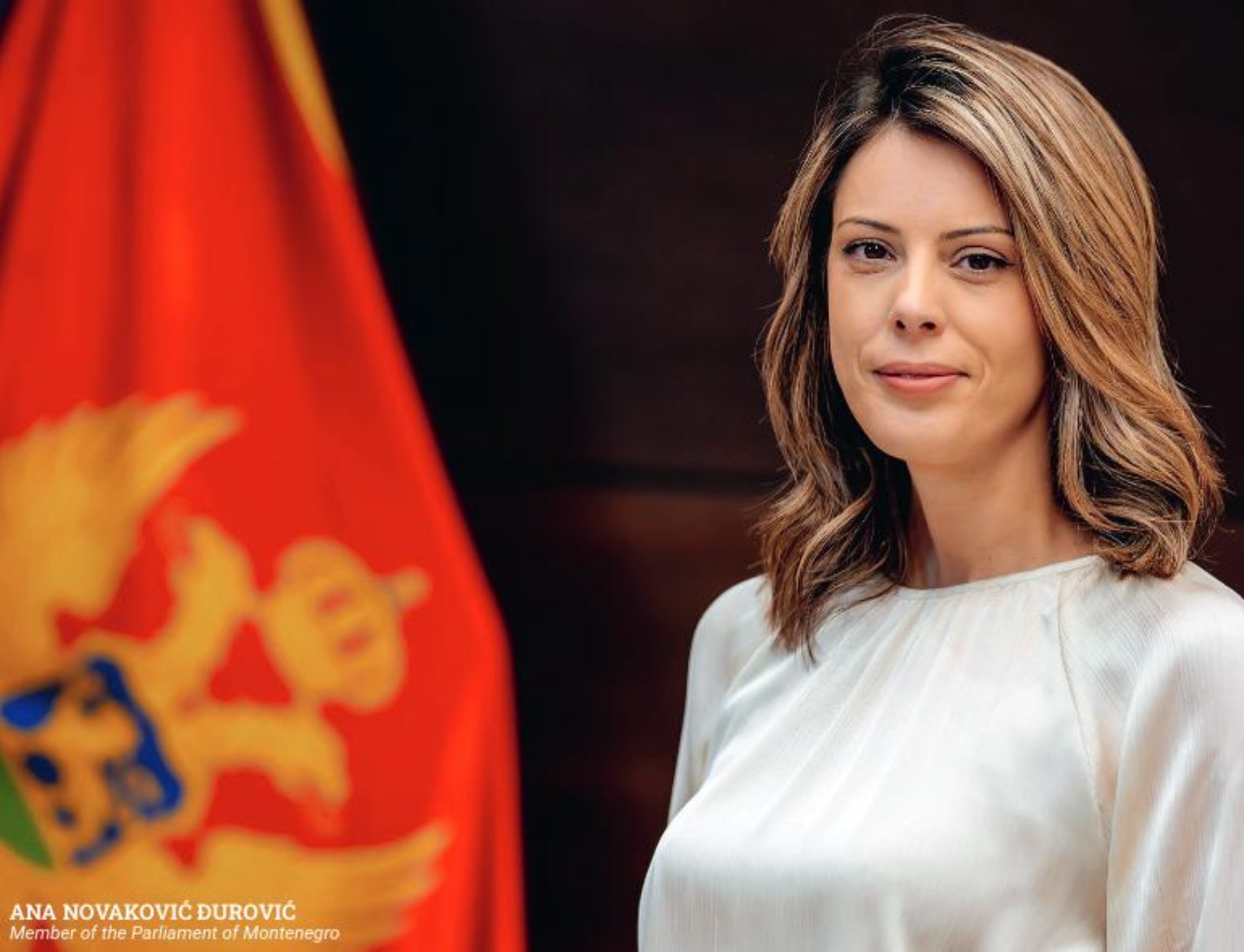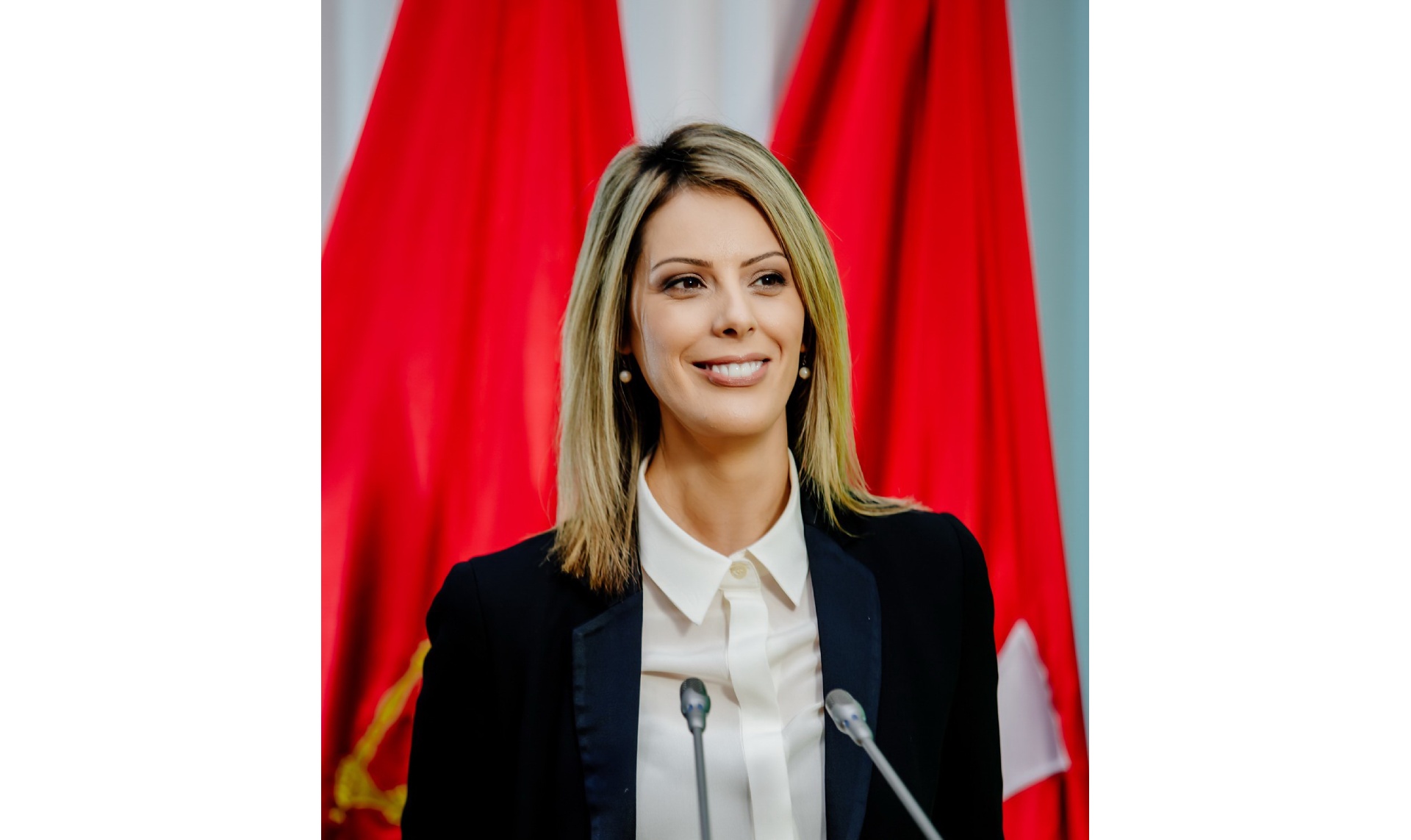Interview with Ana Novaković Đurović
– MP of the Parliament of Montenegro –
During her studies, Ana Novaković Đurović, the esteemed interlocutor of “Diplomacy & Commerce Montenegro” magazine, held a steadfast conviction that she would one day be deeply engaged in the realm of politics. Currently serving as a member of the Parliament of Montenegro, she graciously shared her insightful reflections on the challenges and prospects shaping Montenegrin society. Endowed with a wealth of experience in the non-governmental sector and having played a prominent role in the political landscape of Montenegro, Novaković Đurović articulates a compelling vision—a vision that underscores the imperative need to fortify the democratic institutions in order for Montenegro to truly evolve into a nation governed by the tenets of the rule of law. It is a prerequisite for the development of all other segments of society, she points out. Our interlocutor also expresses her desire for Montenegro to have a female government, which would serve as a convincing example to both political actors and citizens that success can be achieved in a different and even better way.

As a Political Science Specialist and student of the Faculty of Political Science in Podgorica, did you ever imagine that you would one day become a minister in the Government of Montenegro, making decisions that would greatly influence the future of Montenegrin society?
As a student of political science, I was confident that my future career would involve public engagement, possibly in politics. Despite the stereotypes associated with it, I view politics as one of the most honorable callings. Everything, in the broadest sense, is political, and having a role in making decisions on crucial matters bears immense responsibility and privilege. While I didn’t actively pursue a career in politics, my involvement in the field seemed like a natural progression after 14 years of activism in the non-governmental sector. This experience instilled in me a strong sense of responsibility towards the values and ideas I hold dear.
In the fields of philosophy and politics, you widely studied the ideas of influential philosophers such as Plato, Aristotle, Montesquieu, and John Locke. It also referenced your fondness for literature, which developed during your time at “Slobodan Škerović” high school in Podgorica. Considering this background, do you believe modern Montenegrin society is driven by profound ideas or dominated by kitsch and populism?
Our society embodies a spectrum of ideas, ranging from authentic to superficial, reflecting the transitional nature of Montenegrin society as it strides towards democracy and universal rights. Politicians bear a profound responsibility in guiding this transformative journey, steering public perception and societal progression. Their decisions profoundly impact investments in education, culture, and freedom of expression. Consequently, political populism poses threats not only to the political sphere but also to overall societal development, clouding the collective vision. Encouragingly, recent years have witnessed a diminishing tolerance for empty promises and divisive rhetoric, signaling a positive shift in societal attitudes. Although this transformation is gradual, its inception is crucial.
In the 43rd Government of Montenegro, you held the position of Minister of Ecology, Spatial Planning and Urbanism. How do you assess the current challenges in these sectors, and how does your vision of Montenegro as an ecological state differ from previous and current policies?
Ecological Montenegro is still a dream that we are dreaming of, but I believe that it can be achieved. This goal demands dedicated efforts to align our laws and practices with European and international standards, along with significant investments in infrastructure. Additionally, each one of us needs to embrace eco-friendly habits and attitudes towards nature. Teaching environmental protection in our education system from an early age is crucial for ensuring that future generations will protect, rather than deplete, our natural resources.

Prior to becoming politically active, you spent over a decade working in the non-governmental sector. I want to discuss the significance of civil society organizations in the democratization and development of society and how you perceive their role in Montenegro today?
The non-governmental sector plays a crucial role in societal development. It is not merely a platitude for me, as my decade-long experience working with dedicated colleagues has familiarized me with the remarkable knowledge and capabilities within this sector. The role of NGOs is undeniably critical, consultative, and constructive. Politicians need to understand this and not take the sector’s criticism personally. A country striving for true democracy should significantly invest in the development of the non-governmental sector, as it directly contributes to the strengthening of democracy.
As a member of the Presidency and political director of the Civic Movement URA, how do you see the future of the political landscape in Montenegro? What are the key reforms that your party would like to see implemented in the coming years?
Our primary political objective is to pave the way for Montenegro to join the European Union. This commitment remains steadfast whether we are in power or the opposition. During the 43rd government mandate, we spearheaded crucial initiatives to combat corruption and organized crime. It is vital for establishing professional and independent institutions, which in turn is essential for economic growth. We understand that citizens not only seek improved living standards but also yearn for justice. Our foremost priority is to ensure that Montenegro upholds the rule of law, laying the foundation for progress across all sectors, such as the economy, healthcare, education, and culture. Achieving this necessitates unwavering political resolve and bravery, qualities that I currently find lacking in the ruling majority. The proposed quasi-reforms by the government can only perpetuate a stabilocracy, which poses a threat to our society. Our goal is to demonstrate that genuine reforms are achievable and imperative for steering Montenegro toward a future within the European community.
What are the biggest challenges faced by women who want to be actively involved in politics in Montenegro, and how can these challenges be overcome?
The traditional Montenegrin society holds strong patriarchal views, which can be challenging for women who want to engage in politics. Unfortunately, politics is still predominantly seen as a “man’s job,” and women often find themselves being seen rather than heard. Regardless of their political beliefs, women in politics face misogyny and sexism. These discouraging trends can be disheartening for young women with the ambition and capability to pursue a career in politics. It’s concerning to note that recent popularity surveys of politicians feature no women. Despite these challenges, I find them to be an added motivation for me. I firmly believe that within the realm of politics, there are exceptional women with professional expertise. My aspiration is for Montenegro to have a female-led government, which I believe could bring about positive change and set a new standard for politics and society as a whole.